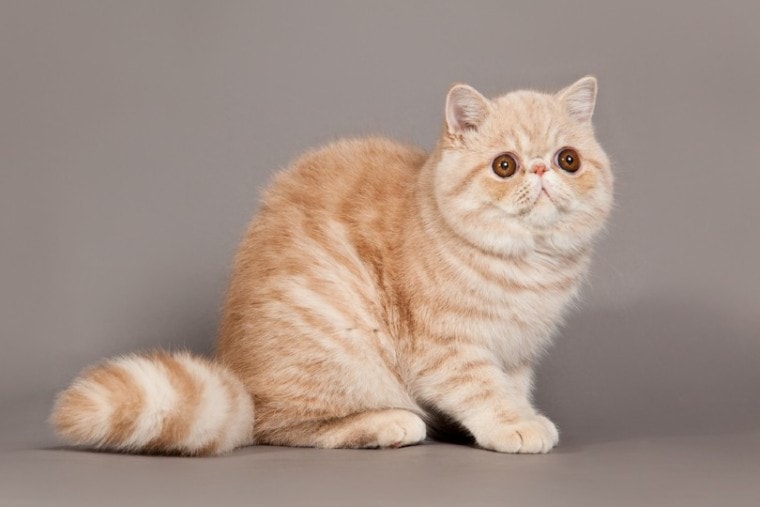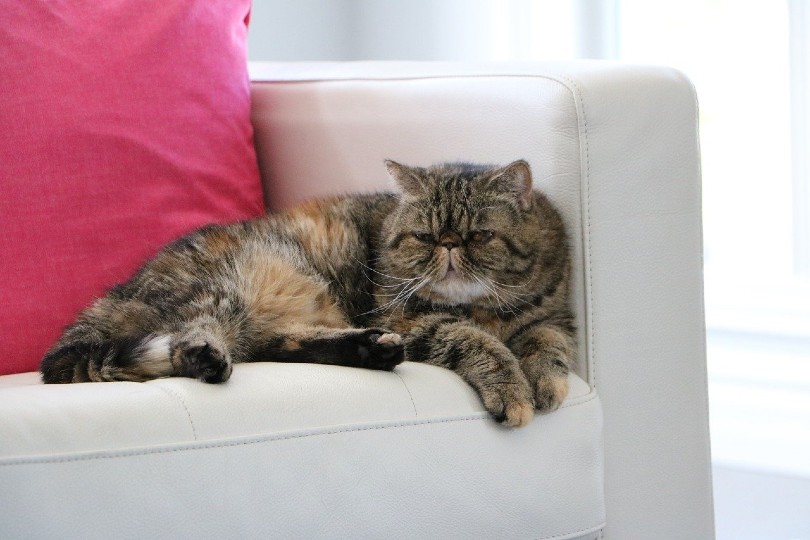
While reputable breeders take precautions to ensure they are producing healthy cats, there’s still the possibility that your Exotic Shorthair cat could develop a few health issues down the line.
This is why it’s important to know the most common health problems your cat could develop, and it’s also important to know the signs of these common health problems.
In this list, we’ll give you a few of the most common health problems to look for in your Exotic Shorthair, as well as the common signs. If you feel that your cat is exhibiting any signs of any of the conditions below, it’s best to get them to a vet immediately for treatment.
Top 5 Exotic Shorthair Cat Health Problems
1. Polycystic Kidney Disease (PKD)
One common health issue you must watch for in Exotic Shorthair cats is Polycystic Kidney Disease (PKD). The signs listed above are just a few of the signs you should watch out for. This condition is caused by improper kidney function and your cat’s kidneys being enlarged.
While the cysts from this disease are usually present in kittens before they reach 12 months old, kidney failure can present years later.
DNA tests can determine PKD, so ensure your breeder can present proof that the kitten’s mother and father have been cleared from having it. Keep an eye on your Exotic Shorthair, and if you see any signs of this disease, contact your vet right away.
2. Eye Tearing
Eye tearing is pretty common for this cat breed. However, if it gets too bad, it can cause infections and other problems. There are many reasons for a cat’s eyes tearing up, including allergies or injury to the eye.
Exotic Shorthairs are predisposed to watery eyes because of the shapes of their heads, round eyes, their short nose, and flat faces. While this is probably not something you need to worry about if you keep your cat’s eyes clean, it’s best to contact your vet for diagnosis and possible treatment if it gets bad.
3. Respiratory Issues/Breathing Problems
Because of their flat faces and short noses, your Exotic Shorthair can have respiratory issues and breathing problems. Your cat will probably have issues breathing in very hot, humid weather. It’s best to keep your Exotic Shorthair in a climate-controlled environment so it doesn’t have issues breathing or catching respiratory infections.
Unfortunately, there isn’t much more that can be done since the cat’s genetics ensure they will have a short nose and a flat face. Keep an eye on your Shorthair, and if the problems seem serious, take them to a vet right away.

4. Progressive Retinal Degeneration (PRA, PRD)
Progressive Retinal Degeneration, or PRA or PRD, is another genetic disease that could affect your Exotic Shorthair cat. This is one of several eye disorders that your Exotic Shorthair might suffer from.
Again, as with any of these conditions, acting quickly and early detection can go a long way towards treating the issue. Besides, these conditions seem to be much easier to treat when they are detected early.
If you notice any signs of this disease in your cat, it’s best to get an appointment with your vet right away for treatment options.
5. Skin Issues
Skin problems in cats are pretty common, but they can be more so in the Exotic Shorthair cat. Because it has a thick, fluffy coat, it can easily get overheated, which can cause a whole variety of skin problems.
If you suspect your cat has a skin problem, it’s best to get them to a vet. To prevent skin issues, make sure to groom your cat weekly and keep them brushed regularly as well.
Conclusion
These are just a few of the most common issues you should look out for in your Exotic Shorthair cat. Remember, just because a cat can be genetically predisposed to have one of these health issues doesn’t mean that it will.
It’s important to find a reputable breeder who will disclose any issues the parents of your little Exotic Shorthair might have from the beginning so you have no surprises in the future.
Featured Image Credit: Ewa Studio, Shutterstock






